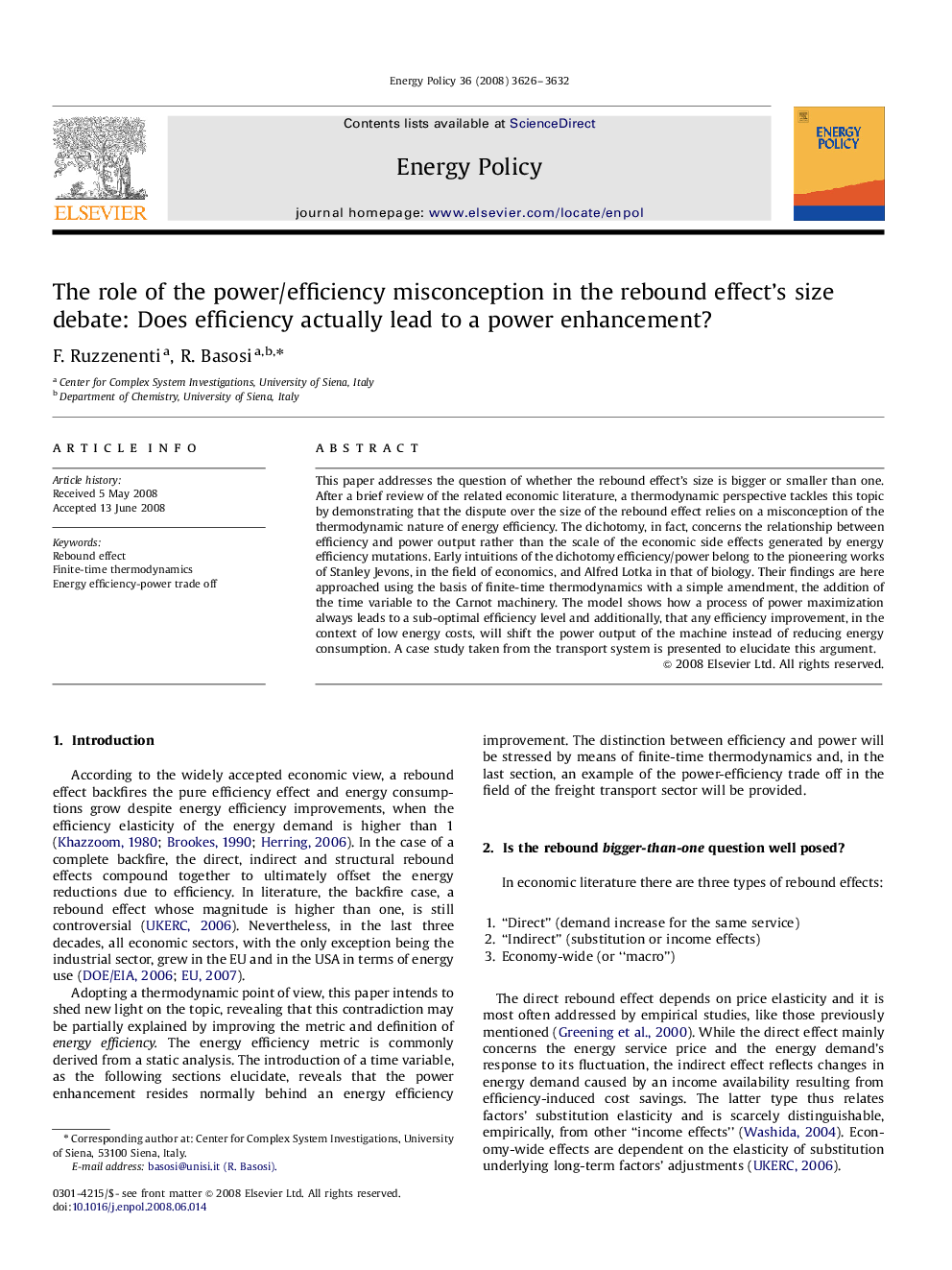| Article ID | Journal | Published Year | Pages | File Type |
|---|---|---|---|---|
| 993853 | Energy Policy | 2008 | 7 Pages |
This paper addresses the question of whether the rebound effect's size is bigger or smaller than one. After a brief review of the related economic literature, a thermodynamic perspective tackles this topic by demonstrating that the dispute over the size of the rebound effect relies on a misconception of the thermodynamic nature of energy efficiency. The dichotomy, in fact, concerns the relationship between efficiency and power output rather than the scale of the economic side effects generated by energy efficiency mutations. Early intuitions of the dichotomy efficiency/power belong to the pioneering works of Stanley Jevons, in the field of economics, and Alfred Lotka in that of biology. Their findings are here approached using the basis of finite-time thermodynamics with a simple amendment, the addition of the time variable to the Carnot machinery. The model shows how a process of power maximization always leads to a sub-optimal efficiency level and additionally, that any efficiency improvement, in the context of low energy costs, will shift the power output of the machine instead of reducing energy consumption. A case study taken from the transport system is presented to elucidate this argument.
